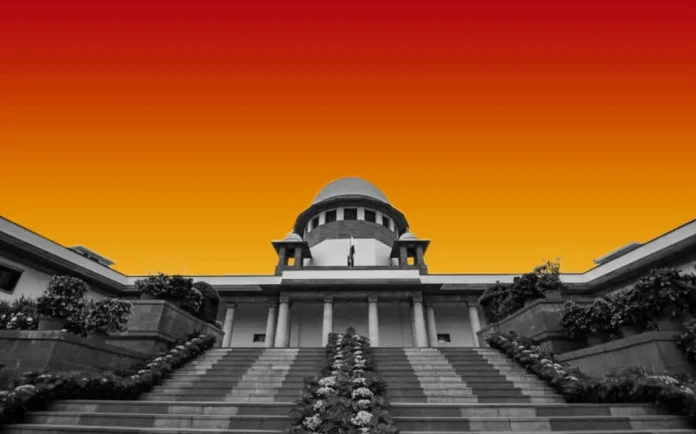The Supreme Court Bar Association (SCBA) has moved the Supreme Court seeking an inquiry into reports that female sanitation workers at Maharshi Dayanand University (MDU) in Rohtak, Haryana, were allegedly subjected to ‘period checks’ to verify whether they were menstruating.
Filed under Article 32 of the Constitution, the writ petition mentioned the October 22 incident at MDU, wherein three female sanitation workers were allegedly coerced by their supervisors into providing photographic proof of their sanitary pads to establish that they were menstruating.
The workers were reportedly called to duty on a Sunday ahead of a gubernatorial visit, despite being unwell, and were humiliated and verbally abused when they sought relief on account of their condition.
The Association described the episode as a grave violation of the right to dignity, privacy, and bodily integrity enshrined under Article 21 of the Constitution.
Drawn by Advocates Sadhana Madhavan and Karishma Maria, the plea requested the Apex Court to order a detailed inquiry into the incident.
It further sought the top court of the country to formulate national guidelines, akin to the Vishaka guidelines, for the protection of women and girls from coercive, invasive, or degrading treatment related to menstruation and gynaecological health.
The plea contended that the MDU episode was not an isolated case but symptomatic of a wider pattern of menstrual discrimination and period shaming in institutional spaces. It cited multiple instances across India where women and girls had been subjected to invasive checks or public humiliation for menstruating, underscoring a systemic disregard for their constitutional and human rights.
Settled by Senior Advocate Aparna Bhat and filed through Advocate-on-Record Pragya Baghel, the plea quoted several judgments to substantiate its arguments.
It argued that in K.S. Puttaswamy v. Union of India (2017), the Supreme Court recognised privacy as intrinsic to personal liberty under Article 21, while in Suchita Srivastava v. Chandigarh Administration (2009), the Apex Court affirmed reproductive autonomy as a core element of bodily integrity.
The Vishaka v. State of Rajasthan (1997) judgment laid down the principle of safe and dignified workplaces for women, while the Court’s 2024 decision in In Re: Rape and Murder of Trainee Doctor in Kolkata reiterated that safe working conditions are integral to ensuring equality of opportunity, noted the plea.
The Association requested the Supreme Court to issue comprehensive directions to the Union and State Governments to ensure that women were treated with dignity and respect during menstruation.
It further sought the framing of national guidelines of menstrual dignity, the establishment of institutional mechanisms for redressal, and the introduction of awareness programmes and sensitivity training for administrators and employers.
Noting that menstrual health and privacy form an inseparable part of the constitutional guarantees of equality, non-discrimination, and personal liberty under Articles 14, 15, and 21, the petitioner contended that ensuring menstrual dignity was not a matter of administrative grace but a constitutional mandate.


